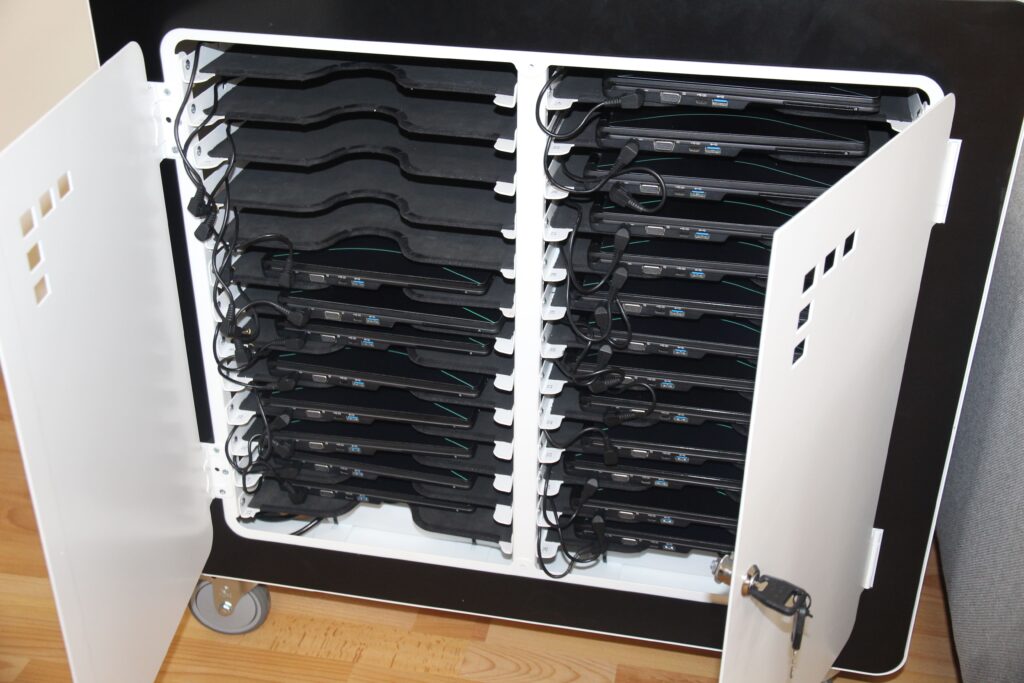Järva Municipality modernises school computer parks in cooperation with GreenDice
GreenDice is working in Järva Municipality to improve digital access and skills within the community. This includes supporting schools with their computer needs. CEO Argo Alaniit has been engaging with school leaders and staff to assess the current situation and give overview about the project.
The input for modernising the computer parks came from Järva Municipality government. They were looking for a solution for outdated computers and found the GreenDice model. “This is a good and optimal opportunity to modernise our computer park. We will reduce costs and get services that we wouldn’t get elsewhere,” said Deputy Mayor Siim Umerov.
Three municipalities across Estonia have joined the GreenDice model: Järva, Häädemeeste, and Tõrva. There are more interested parties, but initially, these three municipalities will have the opportunity to be innovative.
The next steps include upgrading computer parks and training teachers, and the creation of video materials and training student IT leaders is also under discussion. “We have temporarily left Põhja-Järva School in the background. They have been diligent and have already progressed a bit further independently. They have a partner who has guided them. But the replacement of equipment is still necessary, the equipment is depreciated. We will include them in the final stage,” said Alaniit. Koeru Secondary School is currently in the role of an observer. In November-December, activities will take place with four schools: Imavere, Koigi, Järva-Jaani, and Peetri. At Peetri School, all students will receive a personal laptop from the municipality for their schoolwork. At Imavere School, grades 7-9 will receive personal computers from the municipality, while other grades will share devices. The same plan applies to Koigi School. New computers have already arrived at Järva-Jaani Gymnasium. And so, new devices will gradually reach all schools in the municipality.
We use a pencil in every lesson, but a computer only in computer class.
“It could be that we eliminate or have one computer class, for example, for e-exams, but the rest are mobile computer classes. You can take a cart to, for example, an Estonian language lesson, you can take it to a geography lesson,” said Alaniit.

Convenient solutions must be created for teachers. Not every teacher wants to go to a computer class, especially if it is outdated and not their classroom. “It would be much easier to bring the computer to their classroom.” With GreenDice, you can set up an account and create a digital identity. If a student or teacher forgets their computer at home or the computer breaks down, then with the correct settings, they can access all their information from the previous computer by logging into another computer.
According to Alaniit, computers are mainly used for creation, while phones are used for consumption. “We could try to raise people in schools who create something; everyone knows how to consume,” said Alaniit. Computer skills provide an advantage in the job market. There’s no getting around it. Certainly, there are also downsides to immersing oneself in the world of screens, and here, teachers can also do awareness-raising work.
“We are not looking for a one-time result. We want to make digital progress. And I myself see that it would be most sensible to make digital progress through young people,” explains Alaniit, which is the goal of junior IT leaders. To provide knowledge and skills in school to about four students who can also support teachers in solving IT problems.
Recording video lessons is also under discussion, which could be helpful, for example, in the event of teacher shortages. This also gives students the opportunity to review the material learned in class at home. Sharing digital materials is one way that Järva Municipality schools can cooperate. According to Alaniit, all schools would benefit from cooperation.

